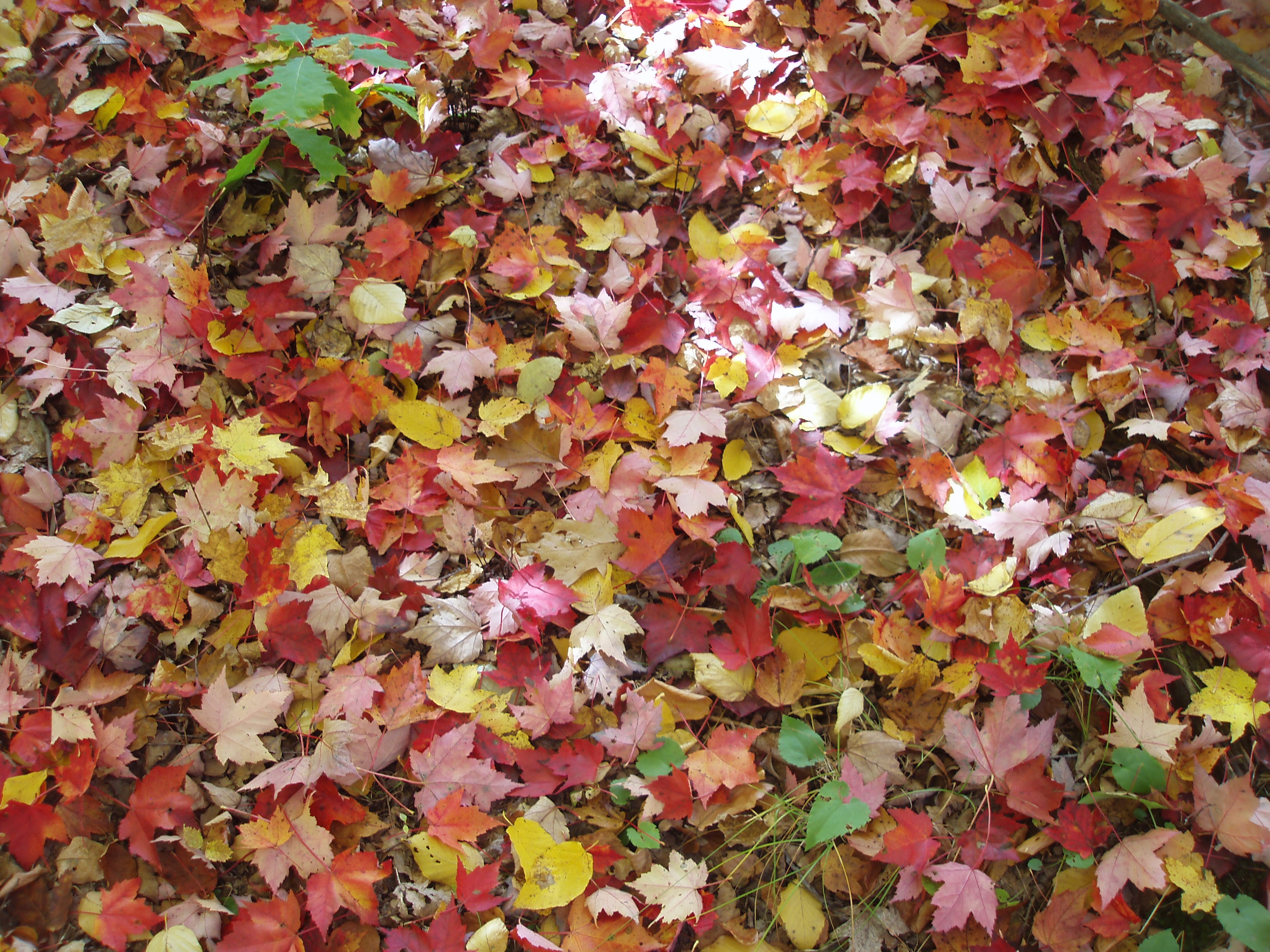Leaves, leaves everywhere! It is that time of year when the newly fallen leaves pile up on your lawn and in your woods.
Leaves, leaves everywhere
You may rake them away on your lawn, but what happens to them in the woods?
Do they stack up year after year and end up burying the undergrowth?
No, they decompose.
The natural system has a way of dealing with them so they don’t stack up. What actually happens in decomposition?
When leaves are freshly fallen and harder to decompose due to their toughness, the bigger critters go to work on them.
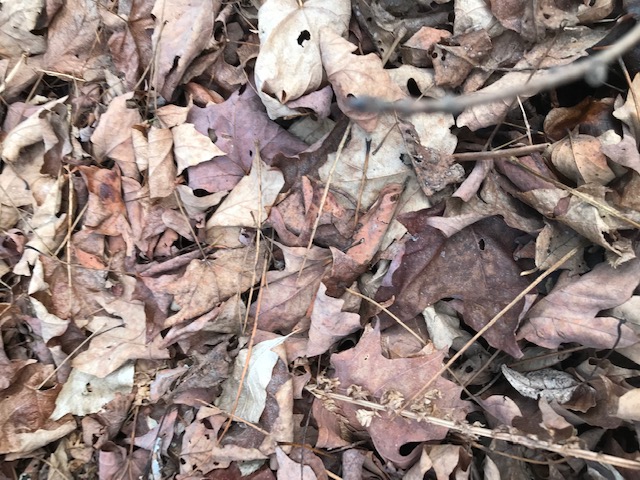
Top layer of this year’s leaves
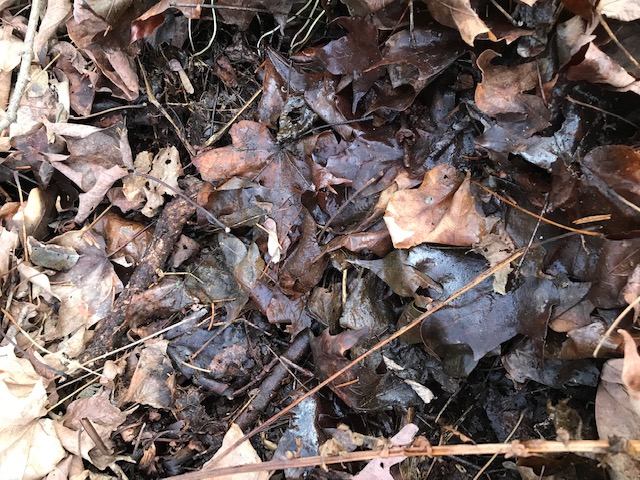
Underneath the top layer of this year’s leaves
Critters like earthworms, beetle larvae, millipedes, mites, slugs, and snails.
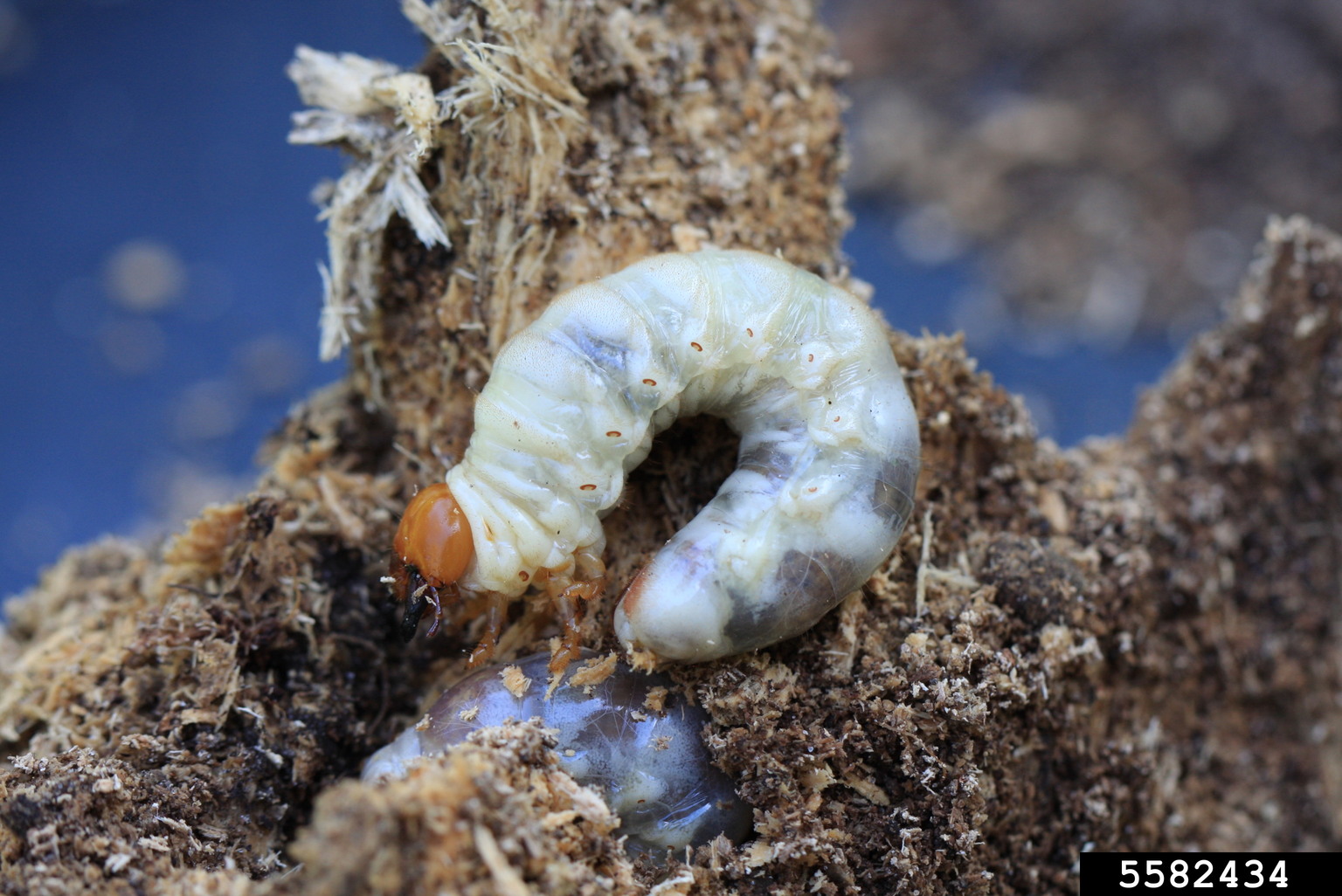
Beetle larva
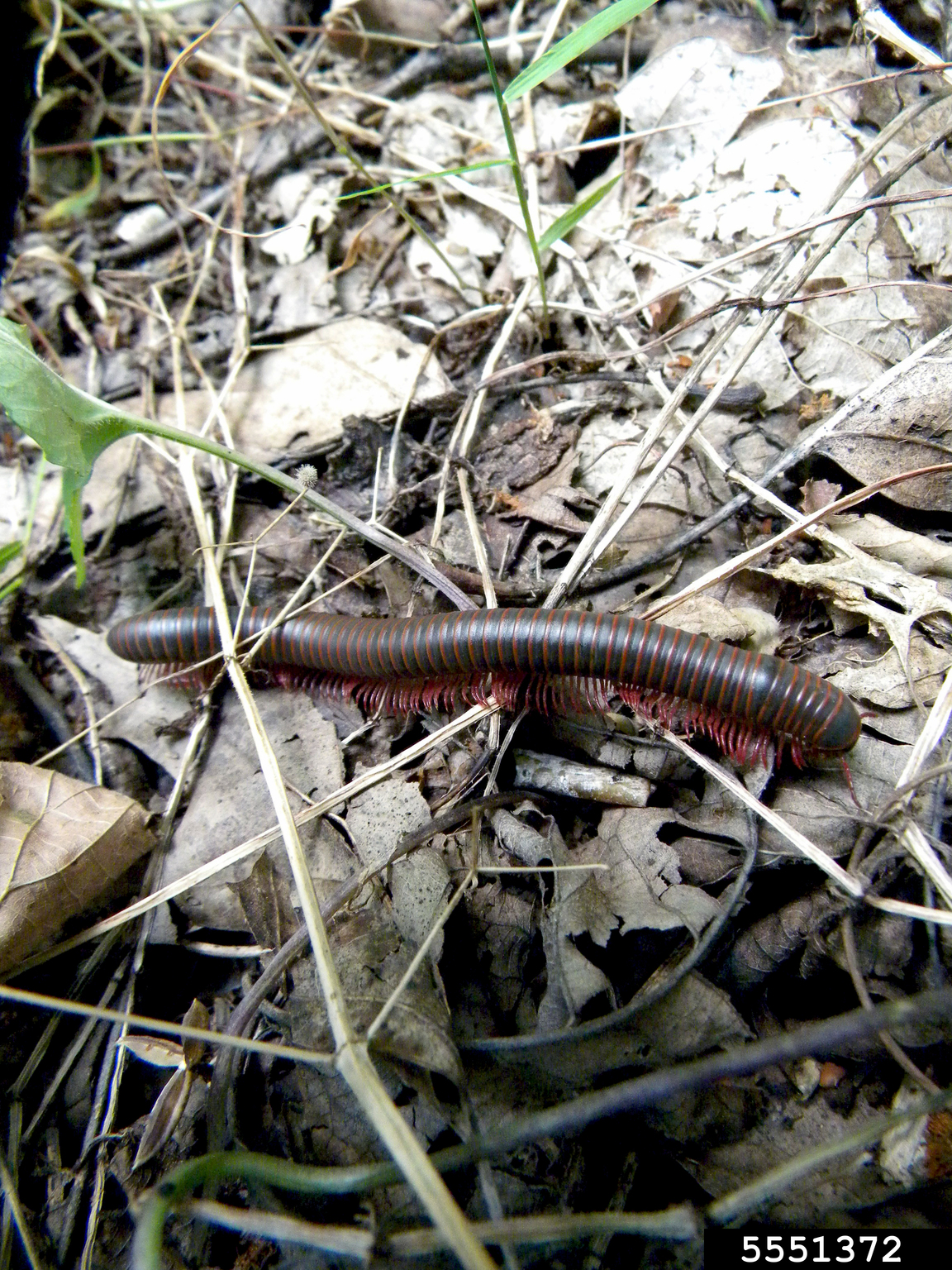
Millipede
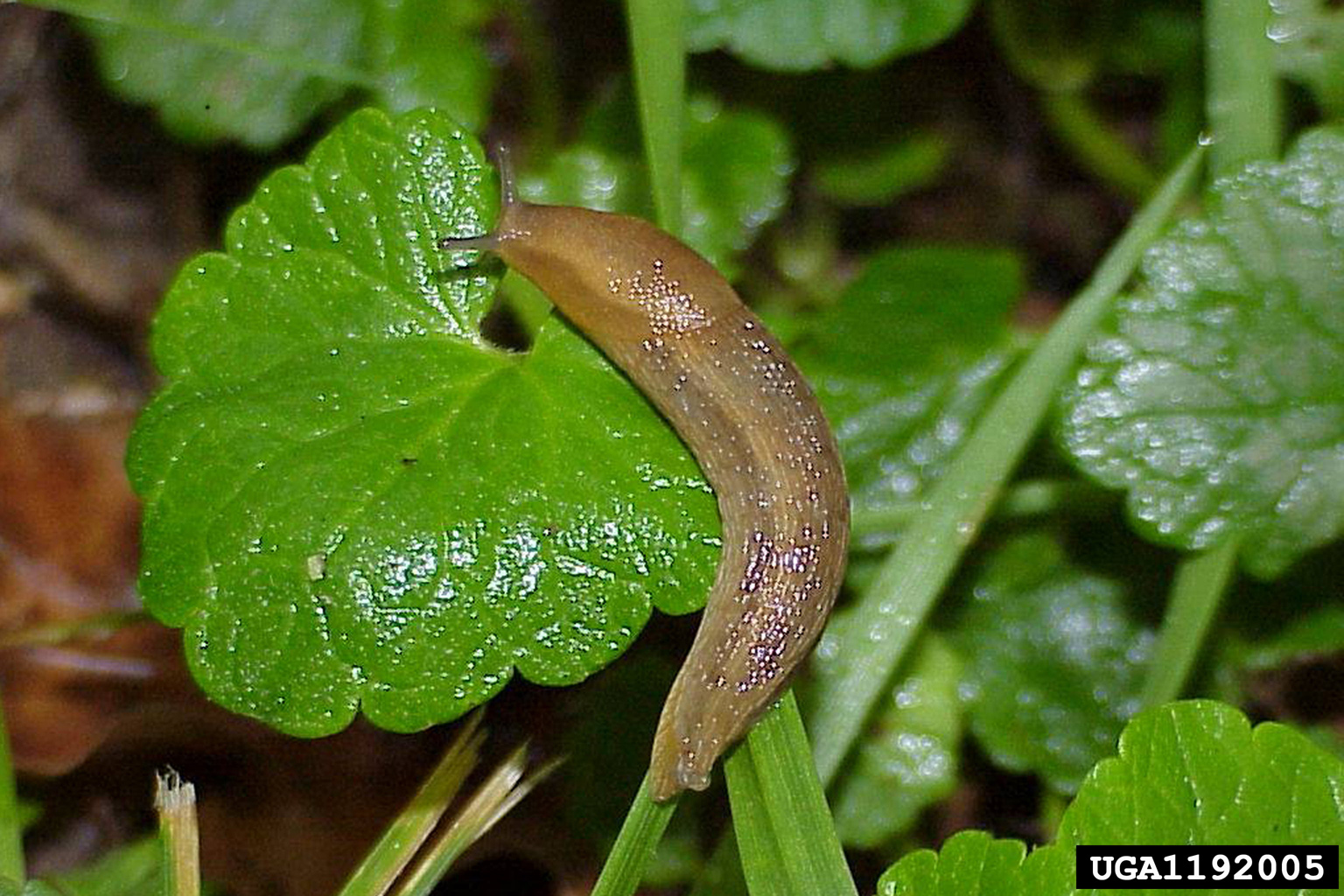
Slug
These critters chew on the leaves, shredding them into smaller pieces. This creates more surface area for the next step in decomposition to happen.
The soil fungi and bacteria start working on these broken-down leaves.
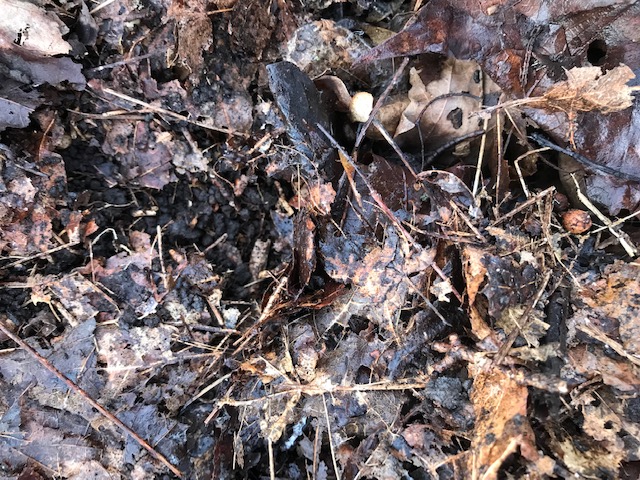
Top layer of last year’s (1-year-old) leaves
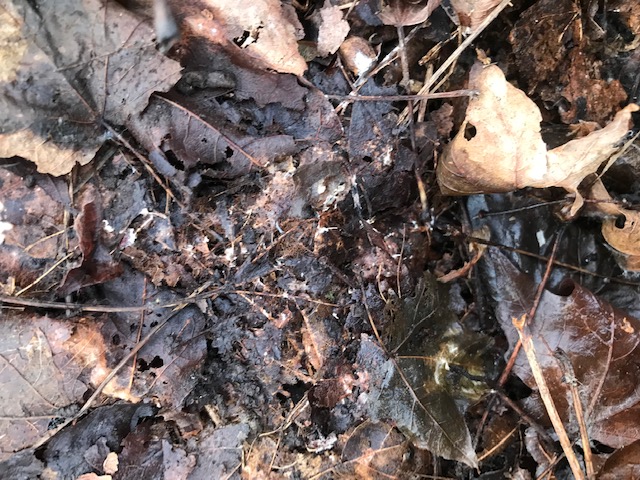
1- or 2-year-old leaves
Fungi have a root-like mat they send out called mycelium. You can actually see these mycelium at times as a white, thin, root-like material under the top layer of leaves.
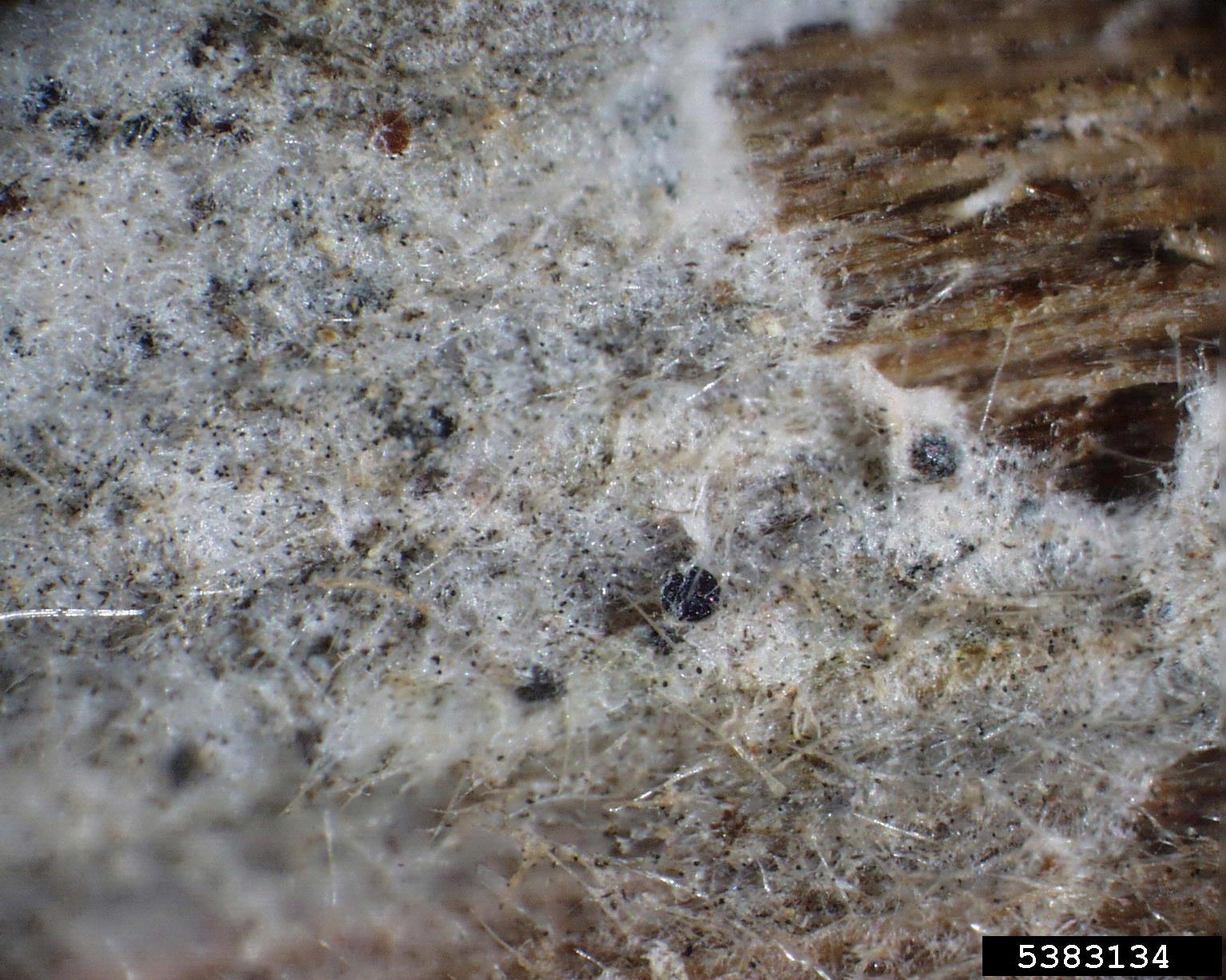
Mycelial mat
The mycelial mat releases enzymes and acids which break down the leaves even more, turning them into rich organic matter.
Soil bacteria are microscopic. There may be 100 million to 1 billion in a teaspoon of soil. They are the most plentiful soil microorganism in number and by weight.
Bacteria release enzymes which decompose leaf litter as well as recycle soil nutrients and improve soil structure (this improves air and water flow).
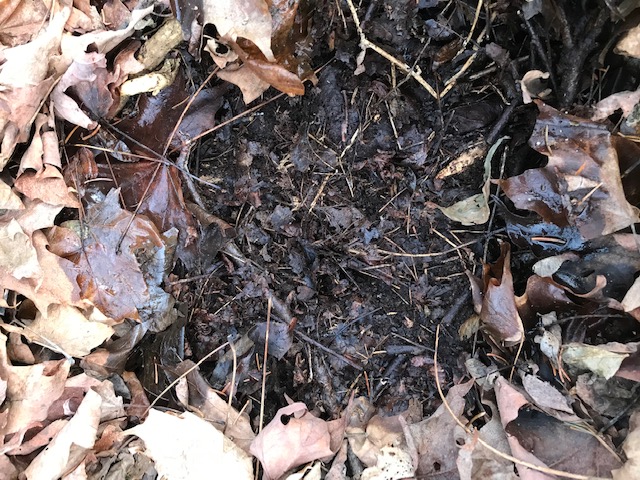
These 2- to 3-year-old leaves are almost soil. Here, they are nutrient-rich and porous organic matter.
So, there you have it. Decomposition breaks down those pesky leaves into soil. Not just any soil, but nutrient-rich, porous soil.
You can actually help fertilize your lawn instead of raking those leaves each fall. Get a mulching mower which will grind the leaves up into small pieces that will help build your lawn’s soil. Plus, it will save you raking, leaf blowing, or however you gather up all those leaves.
